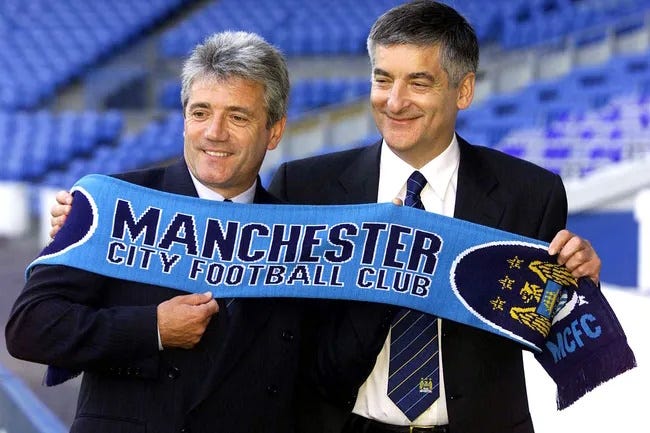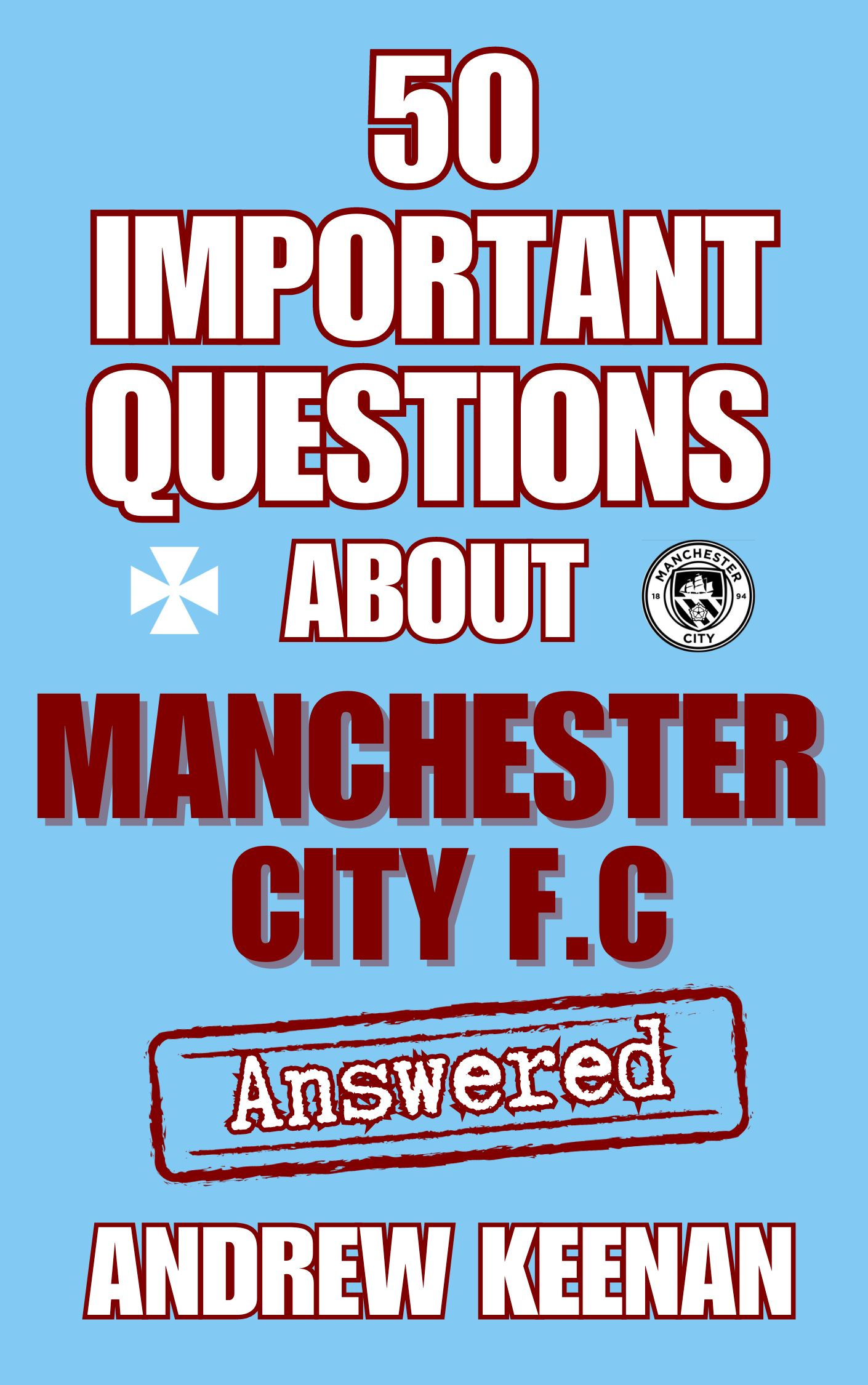Why Did Kevin Keegan Resign?
Every City fan who was there has special memories of the 2001-02 season.
It was Keegan's first year in charge. City had been relegated from the Premier League the previous season, scoring just 41 goals and conceding 65. Not only did we play dour football but, worse still, we went down without a fight, finishing eight points adrift of safety.
It was the third relegation in five seasons, and some were beginning to give up the hope of the club ever winning a title again.
But Keegan arrived at Maine Road like a footballing Mary Poppins, instantly transforming City into an exciting—and winning—side.
Even non-football fans noticed. "They've got a spring in their step," noted one local resident about the City fans streaming out of Maine Road and past his window.
Less than three seasons later Keegan was gone. And he took his dreams with him.
And in the end, it all came down to money.
In nearly four seasons in charge, Keegan's signings cost £44.2million while player sales came to £13.4m. The wage bill increased by £61.7m over that period, bringing the total net extra spending to £92.5m.
That was largely covered by the extra revenue the club received in the three seasons after promotion in 2002. City's turnover was just £28m in 2001-02, but in the following three seasons of Premier League football it grew by a combined £88m.
However, huge upgrades to the club's infrastructure were taking their financial toll. In 2000, work began on the new Carrington training ground. But it was the move to the Etihad (then called the City of Manchester Stadium) in 2003 that strained City's finances to breaking point.
In 2002 the club took out a £30.3m loan from Bear Stearns which was secured against future season ticket sales. The following year City took out another securitisation, for £13.7m from Schechter & Co.
But not only was the £20m cost of fitting out the commercial areas of the stadium £5m more than budgeted, City now also had added expenses, including the £200,000 a year bill for security on the whole 32-acre SportCity site.
The revenue-sharing agreement with the stadium’s owners also saw Manchester City Council take 50% of ticket sales between 34,500 to 40,000 and 60% of sales above 40,000. The securitisations also most likely placed restrictions on the operation of the club, making it hard to raise debt elsewhere.
In 2004 the financial shutters came down.
On 14 May, Keegan announced he was on the verge of signing two players. "I have already started looking to next season and I hope to sign two new players in the next week," he said. "They will either be very small fees or Bosmans, but they are both players we believe can take the club forward."
The following day a Sky Sports News reporter asked him about future signings. Keegan replied that only John Wardle (the chairman) and Alistair Mackintosh (the finance director) could answer that. Keegan told him:
"I don't have the power at the club like I did two years ago."
Two days later it was reported that plans to sign the mystery pair were scrapped after Keegan was told there would be no funds available to him in the off-season. "In previous seasons I have tried to bring people in early but previous seasons are not like this one," Keegan said.
Keegan, a football purist, had no interest in damage limitation or scraping by.
Like the trophy wife whose credit cards have been taken away, divorce proceedings were only a matter of time.
This is an extract from my new book, 50 Important Questions About Manchester City F.C Answered, available on Amazon here, priced £12.95.
I want to keep this Substack free to read. So if you like my work, buying this book is a great way of supporting it. Plus, I think you’ll really enjoy it.
I hope it will provide the answers you’re looking for.
You can subscribe for free, or upgrade to a paid subscription, by clicking the button below. Paid subscribers will get an exclusive story each Monday.
Or if you want to help out with a one-off donation you can Buy Me A Coffee.



